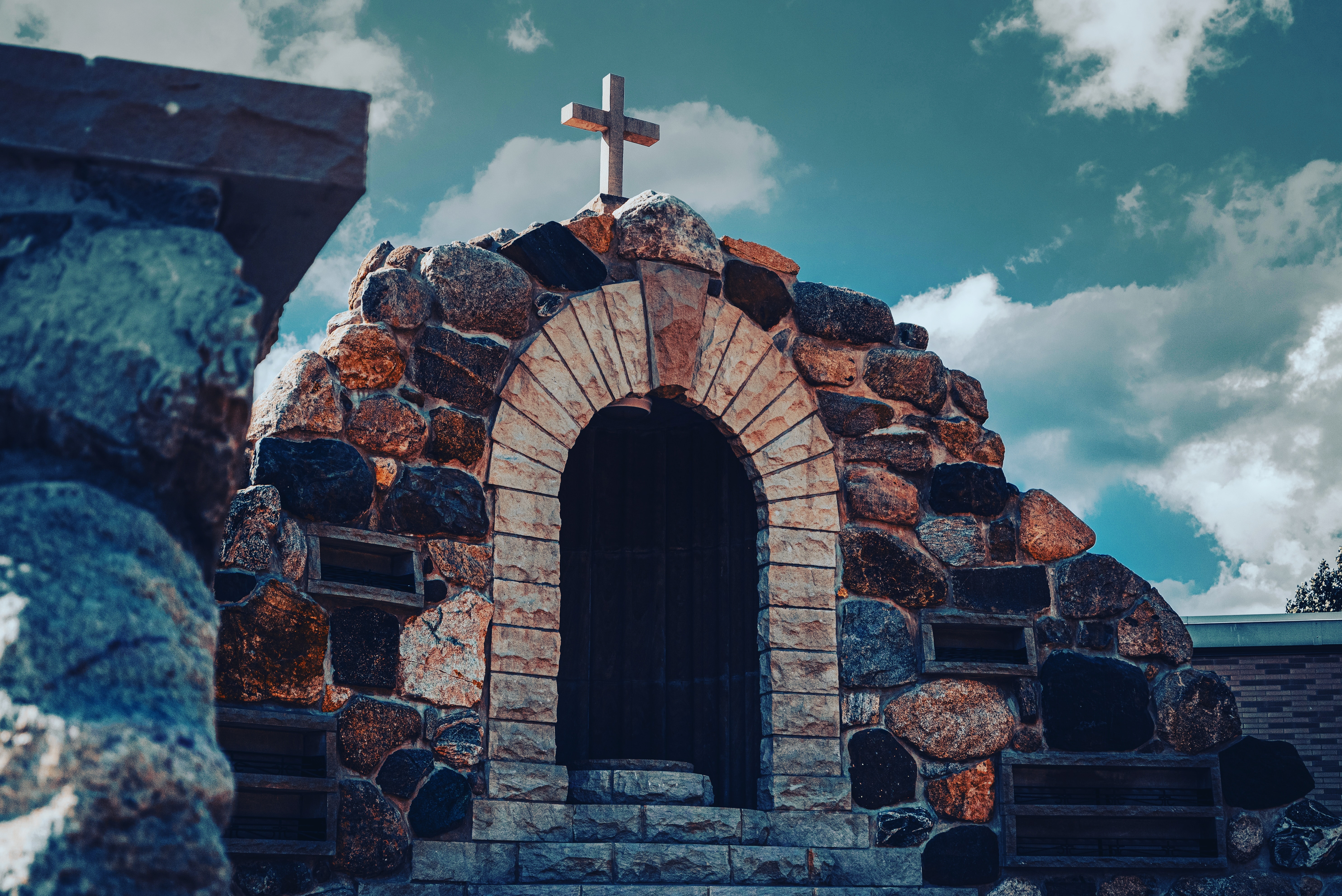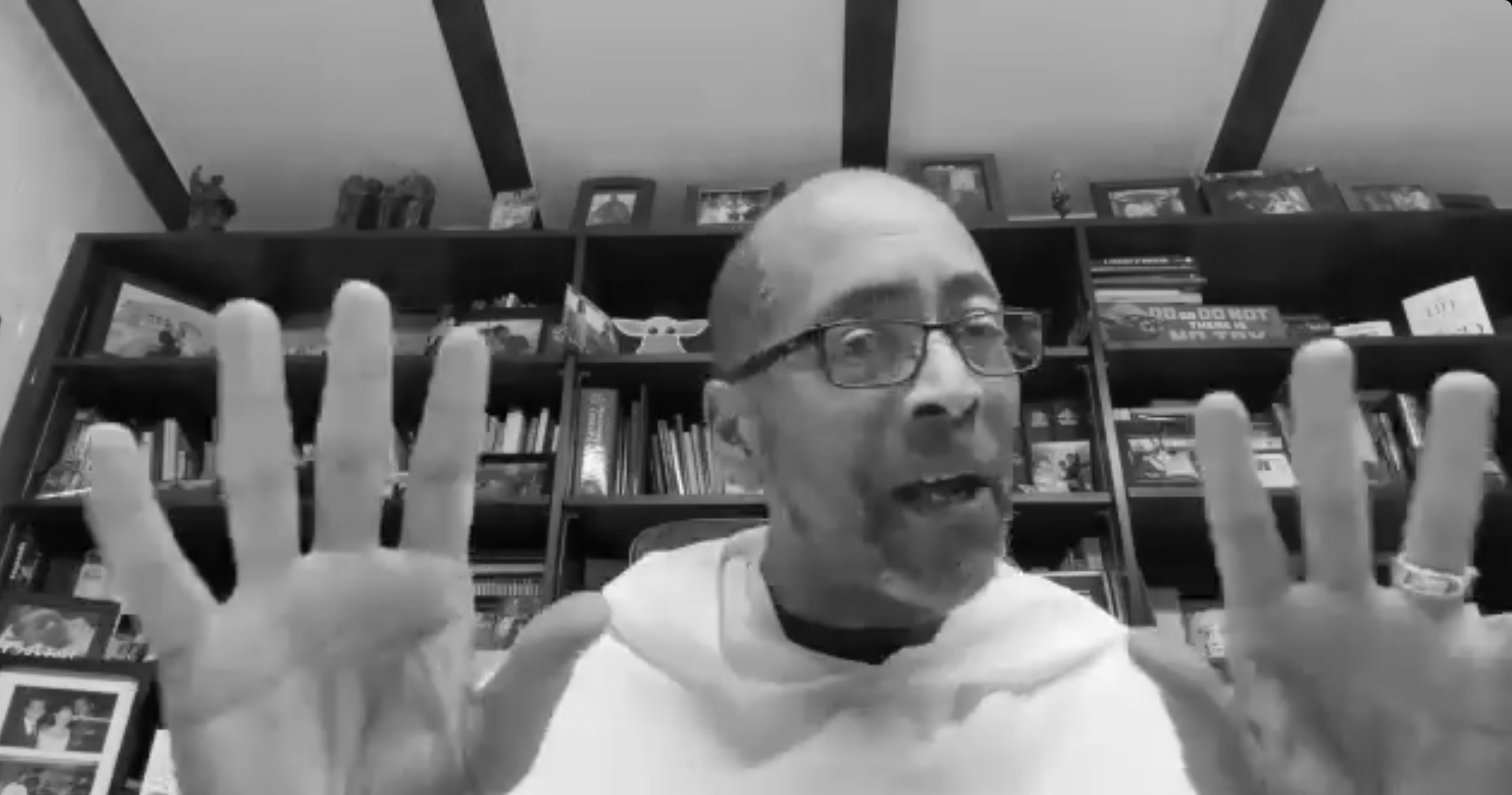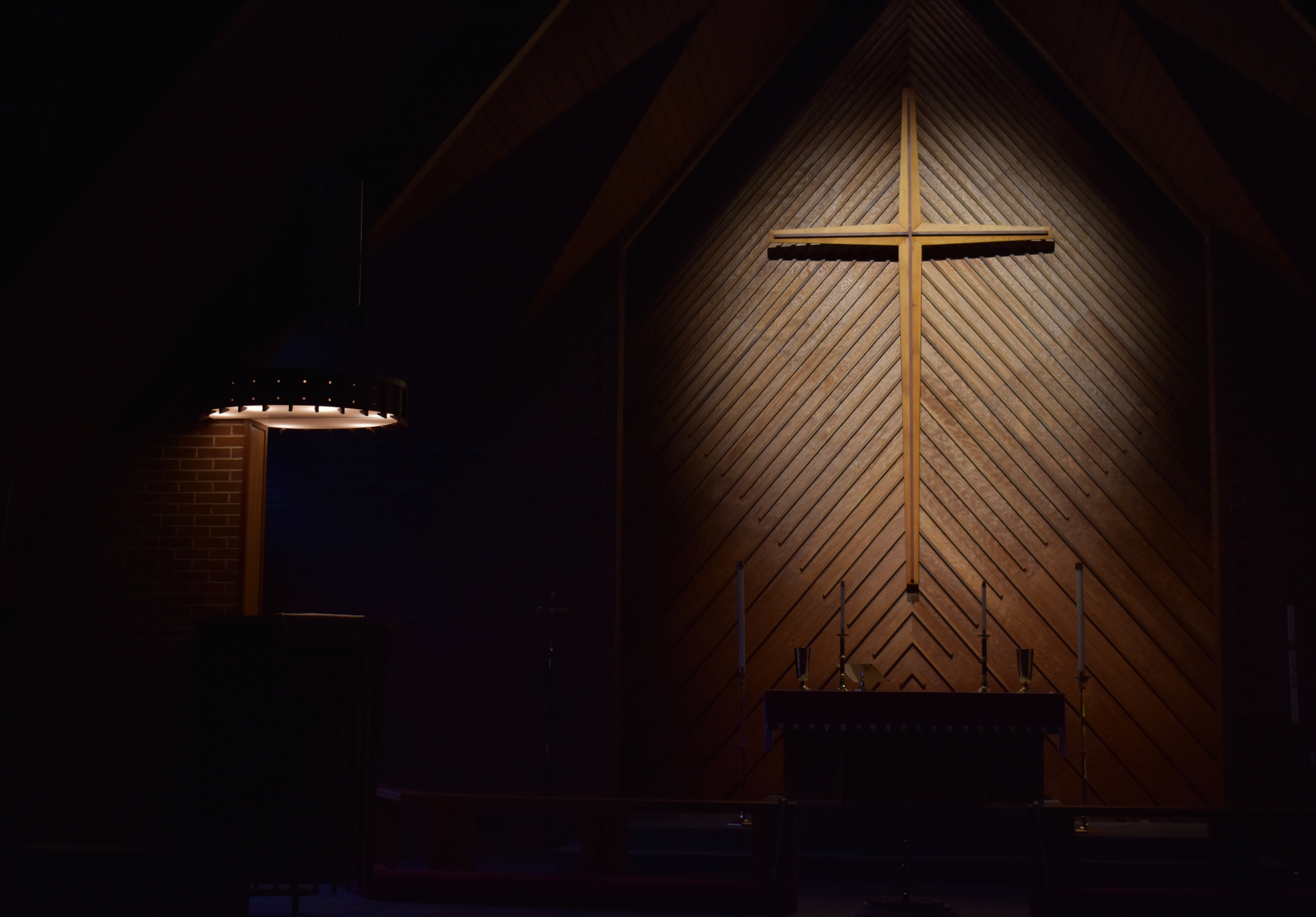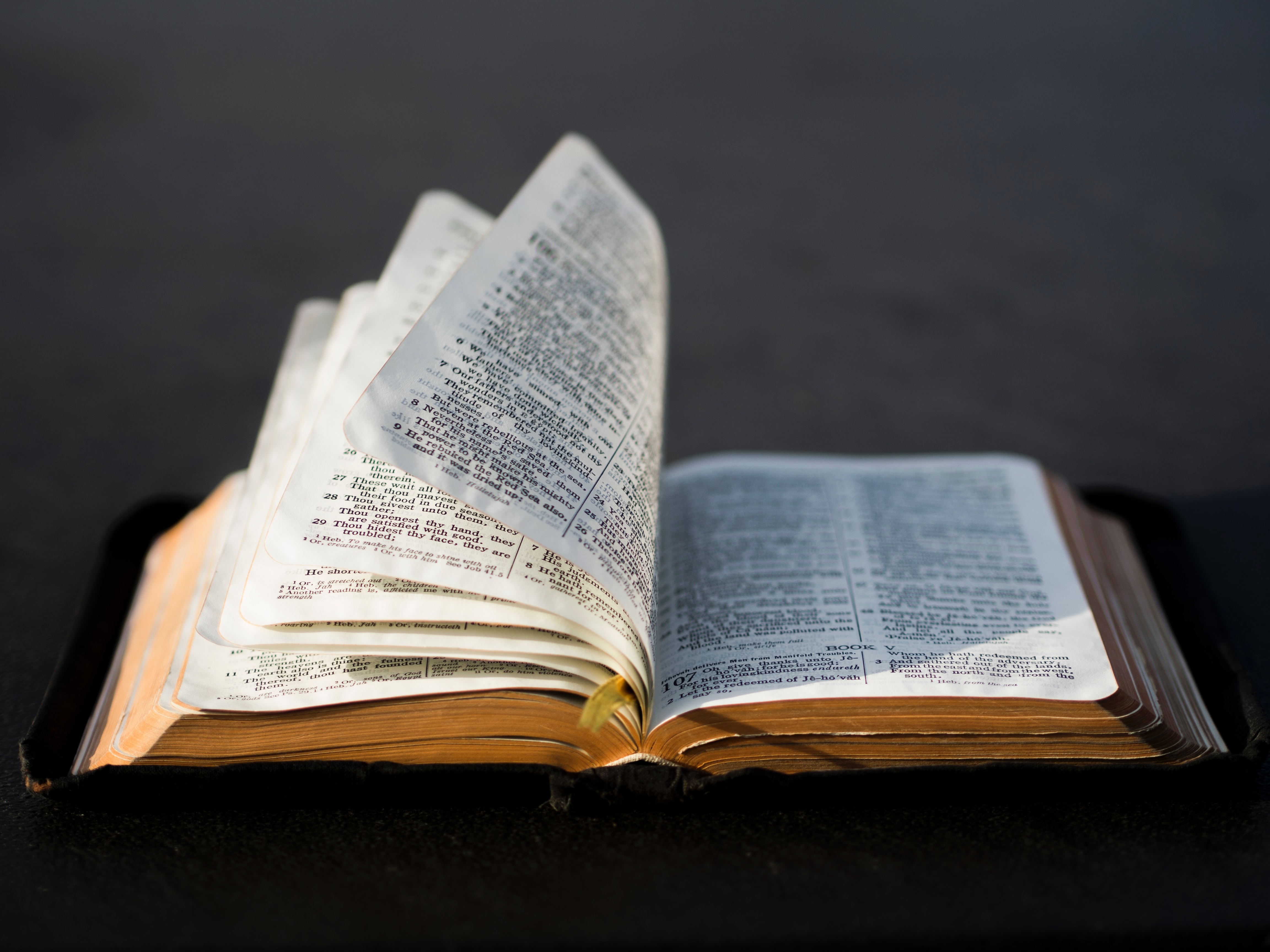"I loved choir rehearsal. You know, I really did. I mean, I think it just felt very warm. I mean, I enjoyed the fact that it was beautiful hearing people make such gorgeous music. And I think that it really is a spiritual gift that God gives you."
Phillip Armstrong, a parishioner and member of the music ministry at St. Benedict the African in Englewood, Chicago, IL, talks about gospel music, leading a choir, and singing during Sunday Mass.
The following is an edited transcript of the podcast interview with Phillip Armstrong:
Phillip, as someone who has been in the church choir, has led the church choir, have music as part of you, when did you first realize that you had these gifts and when did you begin using it within the church context?
So I remember particularly when I realized I had this gift was when I first started going to St. Benedict’s [the African] church, was when my old church Precious Blood had closed down but I would at that time go to Precious Blood and then go to St. Benedict [the African] for 10:30 service. And that’s how I got acquainted with the choir. And it was with Tony Smalls who was the director and also musician, organist, pianist, wonderful arranger, he was a minister of music at the time. He was the one that really kind of nurtured my gift in singing. He put me up there for solos and I remember my first solo that I was singing was There are just so many ways that you can praise the Lord.
And from that point on it was just, I guess, more opportunities started to come out of just singing in the church choir. From there I think I was in fifth grade when I auditioned for the Choir Academy which is on the South Side, near the Back of the Yards. It was a performing arts school through the Chicago Children’s Choir. That really was the ultimate jumping point. But I’d say my gifts were exercised in church because I was singing every Sunday in the choir. I think also the fact that my parents never told me that I couldn’t sing it just was something that I just kept doing. I guess people liked it.
I’m not sure if you could remember, what was one thing that drew you into feeling comfortable?
I loved choir rehearsal. You know, I really did. I mean, I think it just felt very warm. I mean, I enjoyed the fact that it was beautiful hearing people make such gorgeous music. And I think that it really is a spiritual gift that God gives you. The bible, I love Psalm 100 where it clearly tells us praise the Lord all you people, all the land…make a joyful noise to the Lord, and that noise is whatever that comes from your heart.
As a child when you see that, and when you hear that, when you see people enjoy it and you see people are so overcome with that joy from making that music, from singing those hymns, particularly those African-American hymns that come from us historically, it’s a beautiful thing. And I think that the fact that I shared that with my grandmother, I shared that with my father, that’s something that made it special.
And if you know anything about St. Benedict’s [the African] choir, I think that everyone kind of feels like family because we’ve all been a part of it. Also the music is a big part of the growth of the church, in the history of the church. So that is what makes it special to me and that’s why I never shied away. And also I think that your elders love seeing young people praise God. I think that’s the important thing and music is the closest thing that we know there is to God’s ears.
What’s your focus when you’re singing? What’s transpiring in your mind, in your heart , and your inner-self as you’re singing in that church setting?
There could be a number of things. I know particularly, for sure, the first thing I ask God is just number one: to keep my heart open to whatever the spirit might provoke me to do. Because you never know with whatever you’re singing or whatever you’re appointed to sing in that moment, how and what might translate to the ear or to the soul that it’s meant to hear it. So I’m open to the spirit, I keep myself open to that. And I really do think about the words. How am I ministering to myself through this song and through this time.
And I definitely love a good hymn. Kind of like in a ballad type because I like to take my time with hymns. Hymns are so special and sometimes we overlook them. And there are so many great treasures in verses and words. And so when I’m singing a hymn for example, even if it’s “Amazing Grace”, what is amazing about it? What in my life have I experienced grace and being amazed by God’s promises and God’s wonders. Then I think you just allow it to translate. Everybody feels something differently. Like you said I focus. I’m definitely in a whole different world because at that moment it’s not about me. It’s like I gotta get this out, whatever it is.
I know for me I’m only catching a glimpse of the preparation that goes on beforehand. It’s not like you just show up on Sunday. Can you talk a little bit about the preparation?
Okay, it’s real. I really do believe in understanding and reading the word. Whether it’s an app or I’m sitting down with my Bible physically, I make sure every day that I am aligning myself, my spiritual principles and my teachings as I’m growing and within myself as a Catholic, as a Christian, understanding the word. And so I feel, through the word and singing music and ministering to people through music, I have to understand what it is God is saying to us. What is it that we are interpreting? And that’s preparation. My mind, my heart, my spirit, my soul has to be in alignment with the tasks that I’m asked to do. Whether it’s leading a song or whether it’s a responsorial psalm. I also make sure that if I’m reciting the responsorial on a Sunday that I know what we need to prepare for. Where does my spirit need to be. And so that’s every day praying, that’s preparation.
Vocally, it’s making sure that I’m taking care of myself. I’m hydrating every day. I am practicing and singing what it is I want to get out because I want to make sure that I’m not thinking about “oh, I don’t know the words,” “oh, I don’t have myself in tune with the melody.” Like no, that’s a responsibility too, right? Not just being professional but being a person that wants to present your excellence before the Lord especially through song. So that’s getting myself ready in the week. Even if I’m just sitting in the congregation, as a participant, I still want to be my best.
And also I think the other thing, a part of that focus, in preparation and being alignment with the word and through taking care of your voice, is also just knowing that you are still a servant through whatever it is. And people underestimate when you’re in any type of ministry, the music ministry, you are a servant. Unto the Lord, unto the people. You are the person that is the voice that is appointed to lead and bring worship and to provoke that spirit of God through song. I just love doing it and I love it so much you don’t even have to pay me to do it because I’m gonna do it regardless.
Now talking from the perspective of leading a choir, how does that then change your focus or your responsibilities?
Yeah, it’s easy to manage yourself when you know what you’re doing, when you can control yourself, and it’s just you. And sometimes like I said, you don’t even know what you’re gonna do if you’re relying on spirit. But most of the time you’re able to know and be in control. But when you are responsible for other souls and other witnesses through music, it’s a responsibility because it’s no longer about you. You have to make sure that you are open. And making sure you’re helping those individuals feel comfortable in that space of worship. And that’s through knowing what it is you want to get across. Whether musically, like wanting to express a way of interpreting the song or the style of song and how do you do that.
And that’s years of practice. I’ve been watching many levels of conductors from church-choir-level conductors to high school and grade school level-choir conductors to big-stage conductors. And one thing I’ve learned through seeing that and through having some perception is each conductor has their way of how they want to express a song. And so through that, how do you get other individuals that are under your leadership to do that? And I think it comes from a level of trust. So I think when I’m leading a group of individuals, they trust that whatever it is I’m giving them to do or instructing them to do, that it’s going to come out well and that they’re going to sound great doing it.
Another way that I get to exercise that, outside of the church, is being a part of different ensembles throughout. And I’ve been a part of one particular ensemble: Black Monument under Damon Locks. Very proud of that ensemble. I’ve been with him for five years. Artists from all over the city of Chicago and being able to exercise another level of my artistry and songwriting and arranging that just kind of bumps that level of leading other vocalists. But like in church, when I do it in church, it doesn’t seem like work because I’ve been doing it for so long and, of course, had the greatest instruction and worked with some of the greatest, and still do, choir church conductors; particularly in the Black Catholic church. It’s a great opportunity to take a step back from feeling like you’re singing by yourself to being able to also realize you too are part of that ensemble making. Not just directing. You might be leading a song but you’re still a part of the ensemble.
I definitely do think that it’s what you’re saying. It comes from experience and you’re grabbing from all these different life experiences and you bring it all together.
And I get to make my own style and take what I want to kind of define my role as minister of music.
And I think that’s perfectly fine because I feel like not all music on Sunday needs to sound exactly alike. The same way where all parishioners who show up on Sunday, we’re all not the same. We all have different voices and I feel like the music can itself reflect that as well.
Exactly, exactly. And I definitely am one like I said, I love hymns because I’m one to pull out hymns. It’s because I think that it’s so great to be able to exercise those songs that have been in our vocabulary, in our blood for so long. And then also songs that really provoke the soul. But also I like to exercise new; there’s new language. Music is a language, right?
And for the Catholic church like right now there are new sounds that are coming out that people need to hear and Saint Benedict [the African] particularly is a parish that is very fortunate to have extremely great gifted musicians. And also the privilege to be connected with so many great artists from Chicago. There’s so many African-American artists within the Catholic church like Dr. Kevin Phillip Johnson. We sing a lot of his music.
We have a beautiful Mass at St. Benedict [the African] that’s been commissioned for us. Like that’s a different sound, right? And that music comes from such a rich place that our church particularly, and what I love about being an African-American in a Black Catholic church is that, yes, while we have this wonderful beautiful order that we get to partake in our music and our sound, it’s still the same. We love that gospel sound, we love that very nostalgic sound of our ancestors moaning and crying and feeling and shouting. That’s something that I really love to see when directing or singing a song is how people’s spirits are overcome with joy or just whatever spiritual emotion. I love witnessing that.
Can you talk about a specific moment where you felt that? Where as you were leading the choir you felt the people in the church felt moved?
I would say for real it was particularly this past Easter and I think I sang He Would Not Come Down from the Cross and just really understanding, number one, being in a place of vulnerable space like internally. I think we all were, however we expressed that or however we didn’t express it, but just being in a vulnerable space during COVID and not being sure if church is going to happen on a Sunday. And all these things but also the practice I think at that time where we really were relying on our faith in God and really it was a whole different idea of like what it meant to understand the power of that story.
That he didn’t come down from the cross just to save himself but he died so that we may be free. And singing those words in that story particularly just really took over my entire spirit. And I think also the fact that there were other witnesses there that understood the power of that song too. It’s such a special song that for years has really reminded us every year. I just love that song and it just really did something to me. It really, really did. And even the expression that was received from like Eric, who’s our minister of music at St. Benedict [the African], he was even saying, “man, you sang like you never did before.”
And sometimes when the spirit overtakes you, you don’t really understand it. You’re not really there, you just are given it. And it just meant something different. That was at the moment just being thankful for being alive at that time. Being able to celebrate Easter. The privilege it was to just also be in the space, in the building, to experience and to give worship and to be that vessel and that soul. To be able to give that up in that space was very special. I would say that was the best Easter that I’ve had in a long time. Really feeling that spirit and that energy. So that was that time this past Easter and that song He Would Not Come Down from the Cross.
Wow. Yeah, I feel like that’s what music is meant to do. Music is meant to be felt and, unfortunately, very rarely do we actually really feel it.
And listening to the words. We have to really listen to the words. You have to really listen to the words. They’re written for a reason. People have these melodies and these songs that are given to them for a reason. It’s a message and we have to listen and hear what the message is saying.
One of the other questions I have is two-part but the idea is this: in an ideal scenario what would you like to have access to on Sundays? (choir size, type of instruments, etc.) And then at the bare minimum what do you really need when singing in the church?
I would like ideally first, a nice praise and worship team, a minimum of ten willing vessels and souls with great working mics. But we don’t even need particularly in that space a lot of that as much as we just need some great voices. Maybe a bass player to accompany our pianist, an accompanist, and a little percussionist. That would be great. That’s all I would need. I could do a lot with that just starting off.
And because we have great music and we have the song also I would like to experience some more original pieces for St. Benedict [the African], for our church, because like I said we have a very unique arrangement when it comes to our ministries and that is very special. I would like to see our music ministry continue to progress in that way.
The bare minimum I would ask for is that you just be willing and open as a soul. Because let me tell you, I’ve worked with so many different levels, it doesn’t matter. If you have a willing soul and a disciplined soul. You have to come with discipline. Period. And we can do a lot with that. And God gets all the glory and we can be glorified.
So what’s your top five songs you like to sing in church?
Oh great question. I love of course There’s a Sweet, Sweet Spirit in this Place. That’s a part of our church catalog of hymns to sing together. I love Abide with Me. Such a beautiful hymn. And I love All Hail King Jesus. Number four: Total Praise by Richard Smallwood. And number five: I really love this song God Has Smiled on Me. I have so many but that I would say because God has smiled on me. It’s just that one that everybody knows and it’s such a familiar hymn that everyone knows whether you go to church every Sunday, whether you don’t, whether you’ve been in bible school, everyone knows that. You can do so much with that song.
My last remaining wrapping-up questions that I ask all my guests, first is what is one scripture verse or part of the bible that really resonates with you and why?
Make a joyful noise unto the Lord, all ye lands. Serve the Lord with gladness, come before his presence with singing. Know ye that the Lord he is good. It is he that hath made us and not we ourselves. We are his people, and the sheep of his pasture. Enter into his gates with thanksgiving and into his courts with praise. Be thankful unto him and bless his name for the Lord is good and his mercy is everlasting. And his truth endureth to all generations.
That is Psalm 100 and that’s my favorite because it is evident permission and it is written that we are to whenever we come before God, whatever it is that we have experienced in the day or the hour before, when we come in for the presence of the Lord the first thing we do is we say, “thank you” and we be glad. And that we sing and we use our energy, whatever it is that we’re experiencing, we use the power of his song to pour out our spirit and to pour out our emotions. Because it says that whatever it is we’re going through it’s already done. God’s already taken care of it. So why don’t you just praise him in advance for the things that we are going to get through.
And then also it says it gives permission to be glad. To have a loving heart. To be kind to one another. And it also promises that when we do that it’s going to be given to every generation that is reminded to do that. So that’s why I love that.
The second question is what is a word or a couple of words that you would like God to use in describing you?
Loving.
The last question is there anything we can help promote or you like others to support?
Yeah, right now I am featured on an album with Damon Locks for the Black Monument Ensemble. We just came out with another album entitled Now that has been playing all over in Europe. We were just in the Netherlands not too long ago and I have a few other tours coming up in the spring at some jazz festivals, but you can check out the album which is on all the platforms: Apple music, Amazon Music, Spotify and also on Bandcamp. And it’s available for sale on the International Anthem Record label website which is the record label located here in Chicago in Bridgeport. That’s been going very well.
You can also hear this latest interview about Black Monument and some of the other record label musicians like Angel Bat Dawid, Ben LaMar Gay, and Damon Locks with an interview with Gilles Peterson over in Europe this past November. So yeah, check out the album, it’s really cool.





